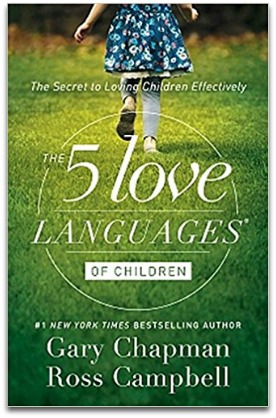 The air was cool, so crisp that a deep lungful through the nostrils left a slight tingle.
The air was cool, so crisp that a deep lungful through the nostrils left a slight tingle.
Outside was grey, the unmistakable smell of rain draped over the earth; the clouds ready to release their unrelenting load. The open windows allowed the fresh, clean breath of autumn to blow throughout the house; a flawlessly sweetened cup of coffee and an unopened magazine waited patiently on the table.
This was the perfect day for a pair of joggers and an oversized sweater. The kids awoke one by one and filled the kitchen with the sounds breakfast; a pop of the toaster and clanging of bowls and spoons meant the day had begun.
Soon afterward the realization that the homeschool lessons could wait, and the day could be filled with Netflix documentaries became an exciting reality. Everyone settled on the couch, but one.
The youngest child pushing and shoving all her siblings to reach Mom’s lap; completely unsatisfied until she was securely positioned in this place of honor.
This child shares more with her Mother than just a strong will and piercing blue eyes. They share a love language.
 Years ago, when I was pursuing my bachelor’s degree in psychology, I was introduced to the writing of Dr. Gary Chapman. His book, The Five Love Languages of Children, changed my parenting style completely. Here’s how.
Years ago, when I was pursuing my bachelor’s degree in psychology, I was introduced to the writing of Dr. Gary Chapman. His book, The Five Love Languages of Children, changed my parenting style completely. Here’s how.
The 5 Love Languages
When a parent and child share a love language it is easy to express and receive love from one another, because both parties will express and receive love in the same manner. However, when a parent and child have different love languages, and are unaware that the challenge exists, it is like trying to build a house with someone who speaks a foreign language.
Both parties will clearly understand what they are saying, but not what the other person is trying to tell them. As parents though, it is our job to learn our child’s love language and express it as often as possible.
In his book Dr. Chapman explains, “Every child has a primary language of love, a way in which he or she understands a parent’s love best.” There are five primary love languages: physical touch, words of affirmation, acts of service, gifts, and quality time.
Physical Touch
 Physical touch is the primary language that I share with my youngest child. It is easy to show love to her because physical touch is a natural expression of love for me and for her.
Physical touch is the primary language that I share with my youngest child. It is easy to show love to her because physical touch is a natural expression of love for me and for her.
She loves to sit on my lap to read and watch movies; my lap is also where she completes most of her school work. She loves snuggling; in fact, as I am typing this she is next to me with both her arms wrapped around me, her head on my arm.
“Hugs and kisses are the most common way of speaking this love language, but there are other ways, too. A dad tosses his year-old son in the air, He spins his seven-year old daughter round and round, and she laughs wildly” (Chapman, pg. 31).
When a child’s primary love language is physical touch, positive touches fill that child’s love tank and can positively effect behavior.
Consequently, when a child with this love language experiences physical discipline such as spanking it can cause severe mental and emotional scars. Any unwanted touching can be especially damaging as well.
For instance, if a child is threatened with discipline for not hugging a grandparent after a visit or not wanting to kiss an uncle as a thank you for a gift. Although it may be embarrassing for parents when their children refuse physical affection with family members, it is important to never force physical contact.
As children age, it may be more difficult for physical touch to come naturally. “Much physical touch at this stage in a child’s life will come through playing games. Basketball, football, and soccer are all contact sports. When you are playing games together in the backyard, you are combining both quality time and physical touch” (Chapman, pg. 35).
If you are a parent who is uncomfortable with physical touch, Gary Chapman suggests starting by giving yourself a massage. Running your fingers through your hair, rubbing your arm, or feet are all good ways to massage yourself, by doing this daily, over time you will become more comfortable with touch as an expression of love (pg. 42).
Words of Affirmation
Words of affirmation is the love language of my oldest child, and only son. He will be a teenager next month and he is nearly as tall as me, but he still needs his love tank filled daily.
He is an entertainer, he loves telling jokes and just doing silly things to make others laugh. When I tell him how funny he is and how much joy he brings to me, his face lights up.
Last week my son helped my husband with the yard work. He was thrilled to use the weed eater by himself for the first time; but even more thrilling was being told that he did a good job, and that the yard looked good.
Just now, as he read the words I have written about him, his eyes are filled with tears. Just knowing that I wrote positive words about him filled his tank to overflowing. “In communicating love, words are powerful…Even though such words are quickly said, they are not soon forgotten. A child reaps the benefits of affirming words for a lifetime” (Chapman, pg. 45).
I have learned over the years that with his love language positive words can cause his self-esteem to soar, while negative words can cut like a knife. After all, the power of life and death are in the tongue.
When his poor choices need to be disciplined word choices are critical. “Cutting words, spoken out of short-lived frustration, can hurt a child’s self-esteem and cast doubts about his abilities” (Chapman, pg. 45).
I like to follow up any needed discipline with a reminder of his good qualities. I homeschool my children and recently my son neglected some of his work. He decided to play video games instead of studying for a science exam, as a result he received a poor score; which caused him feelings of inadequacy.
I had to remind him that he does very well in our science experiments because of his love for discovering how things work; and that his grade was not a result of a lack of knowledge or ability, but simply the result of a choice that he made.
I have developed a few quick and easy techniques to use, because I know how easy words can go unspoken in a busy lifestyle:
- Send a positive text message or email to your child.
- Leave an encouraging note in his lunchbox or backpack.
- Set a phone reminder or alarm for yourself at random times throughout the week as a reminder to tell your child something positive.
- Cheer for your child at their sporting events.
- Allow them to hear you say something positive about them to someone else.
It is also important not to focus on only one aspect of a child’s qualities. For instance, if you only ever compliment your child on her looks, she may begin to believe that her appearance is the only positive thing about herself.
In my son’s case I might compliment his intelligence one day, then compliment his eagerness to help one of his sisters the next day, sometimes just a simple, “I love you” is all that is needed.
Acts of Service
 Even though I do not have a child whose primary love language is acts of service, I find myself providing acts of service daily. “Parenting is a service-oriented vocation. The day you found out that you would have a child, you enrolled for full-time service. Your contract called for a minimum of eighteen years of service with an understanding that you would be on ‘active reserve’ for several years after that” (Chapman, pgs. 83-84).
Even though I do not have a child whose primary love language is acts of service, I find myself providing acts of service daily. “Parenting is a service-oriented vocation. The day you found out that you would have a child, you enrolled for full-time service. Your contract called for a minimum of eighteen years of service with an understanding that you would be on ‘active reserve’ for several years after that” (Chapman, pgs. 83-84).
My youngest two can be rough on toys, they are 5 and 6 years old, so I frequently find myself fixing toys for them. My oldest daughter, who is 11 years old, has two pets that she is solely responsible for their care. When she needs supplies for her cat or her hamster, it is an act of service to go to the store to get those things for her.
We also attend a weekly homeschool co-op, and before our first day of classes, I took the time to gather their school supplies and help them pack their backpacks. My husband also packs our lunch for us every week while we get ready for class.
These are all acts of service that we provide as an expression of love. Acts of service is a love language that is easy to combine with other love languages as well. For instance, my son and I volunteer at our local animal shelter for two hours every other week. While we are providing an act of service to our community, we are also spending one on one quality time together, another love language discussed below.
If you notice your child raking leaves for a neighbor, or you wake up to find they made you a cup of coffee, it is a good indication that their love language is acts of service. If this is your child’s love language, you must ensure, that your expression of love is through acts of service as well.
At the same time, make sure you are not enabling them to avoid doing things for themselves. It is important that children learn basic life skills, otherwise, they may reach adulthood only to find that they cannot complete basic tasks essential for life. This will not only make life difficult for them, but also for their future families as well. Make sure that your child knows how to cook, clean, shop for necessities, and balance a bank account by themselves.
As parents it can be easy to indulge in the desire to do everything for them, especially if the parent’s love language is acts of service. However, it is important to balance our expression of love with life preparation.
Gifts
In my opinion, the love language of gifts is one of the most difficult to balance. As a parent it is easy for me to shower my children with gifts, I enjoy seeing their excitement at Christmas and birthdays, so it is a natural expression of love to give them what they want.
However, giving children anything they want anytime they want is not a true expression of the love language of gifts; it also sets a very dangerous precedence of entitlement and overindulgence.
Giving gifts is also not a substitute for being an active participant in a child’s life. “The giving and receiving of gifts can be a powerful expression of love, at the time they are given and often extending into later years. The most meaningful gifts become symbols of love” (Chapman, pg. 71).
Giving gifts does not have to be expensive, anything that shows your child that you were thinking of them is a good gift. If you have a very young child that often brings you a pretty rock or shell they found, they may have gifts as their love language. An older child might draw you a picture or make a bracelet.
A child whose primary love language is gifts will enjoy their gifts so much they may make a special place to display their gifts, they may tell their friends about their gifts, or show off their gifts to others.
Quality Time
 Two of my children have the primary love language of quality time. One of my best memories of recent time spent with my oldest daughter was a day that I had planned out in advance as a surprise for her.
Two of my children have the primary love language of quality time. One of my best memories of recent time spent with my oldest daughter was a day that I had planned out in advance as a surprise for her.
I started the day by taking her to the mall where I bought her some lip gloss and a sweater. Then we went to lunch at a pizza buffet. Afterward we went to our local community college where a friend of mine was taking photography classes and she needed some models for her portfolio.
There were several selfies taken that day, and I am amazed at how bright her smile was. More important than the activities, though, are the conversations that took place that day.
Throughout the day she shared with me intimate details about her feelings, her friendships, her future, and her eagerness for the next steps in her life; it was a day that will not soon be forgotten.
The next weekend, I did something similar for my 6-year-old daughter. We went out for lunch, spent a couple of hours at a playground, then had some puppy playtime at our local animal shelter. She came home so excited to tell everyone about her day; even though it has been a couple of months, she still talks about that day.
I do plan these longer outings with each of my children a few times a year, but their need for quality time is a daily need. Sometimes their need can be met by just sitting with them and talking, sometimes I may only take one child on an errand or complete a chore with just one child.
They can also have their need for quality time met with a game or completing schoolwork one on one. There are many inventive ways to spend a few minutes of quality time with each child daily. My children have learned as well when they need a little extra time they have code phrases they use.
My oldest daughter will ask for a “private talk”, and my other daughter will ask for “Mommy-Daughter time.” As a parent, I know how busy life can get with a husband, multiple children and a personal life, so when my children need to use their code phrases, I know that I have gotten my priorities off track.
I am also an introvert, so social situations can be physically exhausting for me, I need alone time every day or I can get easily frustrated. Finding that balance can be difficult, but it is worth the work, when everyone in the house feels loved and appreciated.
How to Discover your Child’s Love Language
It is important to know what your love language is. You will naturally express your own love language easily. However, if your child has a different love language than you, they will not receive your expression how you intended it.
Over the years my husband and I have had several foster children in our home. Once we had a child that was complaining of feeling sick, so I reached my hand up to feel her forehead; when I did she jerked back.
I naturally used my love language of physical touch to show care and concern for this child. Not only did the child not share my love language, but also this child had such an extreme negative experience with physical touch that the mere thought of being touched was overwhelming.
If your love language is gifts, you might consistently buy gifts or make things for your child, and your child will show excitement when receiving it, but the gifts might get broken or lost. If your love language is acts of service, you might frequently do things for your child, but they get frustrated because they want to do it themselves.
Perhaps your love language is quality time and you consistently make time to spend with your child, but they spend much of that time on their phone or tablet.
All these situations are examples of what can happen when a parent is expressing their own love language to their child, but not expressing the child’s love language to them.
However, once you understand what language you child speaks, you can become fluent.
My own personal journey of discovering my children’s love languages involved some journaling and attention to detail. In my son’s case, I started to notice over time how positively he reacted to verbal praise.
I am a believer in having children complete chores, according to their ability level, and I noticed that he was much more likely to do his chores if he received verbal praise. As a teenager, this has not changed.
I also noticed that often when he comes to me to talk about a problem, that problem often revolves around his hurt feelings when someone has said something unkind. His positive reaction to verbal praise and negative reaction to unkind words is a clear indication that words of affirmation is his love language.
My 11-year-old and 6-year-old daughters both have quality time as their love language. I have noticed that they argue with each other more when they have not had a least a few minutes alone with me daily. Even if all I have is five minutes, those few minutes of technology free, undivided attention is all they need to fill their love tank.
In a busy, modern world, for a parent to put down their phone, or just drop whatever they are doing for just a few moments and give undivided attention to their child; it speaks volumes to the child. It tells the child that they are important, and that they are loved.
I knew, from the time she was an infant, that my youngest child’s love language was physical touch. As an infant, she spent much of her time in a baby sling, carrier, or wrap. She hated car rides, never used her baby swing and strollers where out of the question. Even now, as she is beginning Kindergarten, her most often used phrase is, “carry me.”
If you are just beginning your journey of discovery, start with the quizzes on the love languages site to get a starting point. Next, I highly suggest getting a journal. Everyday, write down one thing that you did to show love to your child, and write down their response.
Try different methods, for instance maybe one day surprise them by doing one of their chores. The next day leave them an encouraging note. I often find that even very young children enjoy having choices.
Set aside 15 minutes and ask your child which they would rather do, play catch or snuggle while reading a book. At the end of a week a pattern should emerge that will make it easier for you to internalize your child’s love language.
The 2-Minute Action Plan for Fine Parents
The first thing to do is realize that no parent is perfect. If you have been expressing love to your child in your own love language instead of theirs, it is fine. Simply start today to express it in their love language.
To recognize both yours and your child’s love languages –
- Think about the things that others have done for you, which things are the most memorable/meaningful?
- Think about the things you do for your children daily, how are you expressing your love to them?
- Think about the things your children do for you daily, how are they expressing their love to you?
The Ongoing Action Plan for Fine Parents
Learn to express all the love languages to raise a well-loved (not spoiled), well rounded child.
Plan to use your child’s primary love language daily, while using the other four languages periodically.
Get out your journal and record your love language experiences with your children. What did they like? What did they react negatively to? Journal your journey into a daily expression of love using your child’s own special language.
Sheree,
Thank you so much for stopping by and reading. There is so much wisdom, and relevance in his books. I am glad you enjoyed reading. Blessings!
This is so helpful thank you and a timely reminder. A great refresher for me (I’ve read almost all of G.C. books)
Great job there, ma’am. Just putting each love language to where it belongs in case of children and I must say, this is really helpful. Thanks a lot
Qudrah, you are very welcome! Thank you so much for reading; I am glad you enjoyed the article.
Hi Stephanie,
I have known about Chapman’s Love Languages for years. I intentionally use the concept to guide my relationship with my husband but somehow never related them to interactions with my children. Thanks for your well thought out and easy to understand article. As I read I began to identify my children’s love language and had an “ahhah” moment. I still have more research to do to figure out my youngest child’s love language. You gave me much food for thought.
Dadria, Thank you for your kind words. I am so glad you enjoyed the article. I had a difficult time figuring out my third child’s love language. It did take some time and intentional effort. I am a visual learner, so it helped me to have a journal to record my activities and her reactions. I also had her draw a picture of who loves her, and I asked her to tell me how she knows that those people love her. It became clear, once she started telling me her reasons. She has a primary and secondary love language. It is possible that your youngest child has both a primary and secondary love language as well, in that case you may find that your child prefers physical touch, for instance, from family while they prefer quality time from friends. I wish you all the best on your journey of discovery.
Oh my god. You gave me a much needed Aha moment! Thank you!! I am single mom to an only child, a boy of 15 years. I struggled in comnecting with him emotionally always. My act of love was different from his.Now i get it. Changing my parenting style from now!
Thank you again!
Nebu,
I am so glad that you found a new way to connect to your son. Single parents are a special kind of parent, that connection with your child is ever so important. Thank you for reading.
Shaly, thank you so much for stopping by. I am glad you enjoyed the article. I agree; as parents we never stop learning. When my husband and I were going through our classes to become foster parents, I remember talking about how our experiences with our own children correlated with the training. However, we quickly learned that nothing can make you doubt what you thought you knew more than a child. As parents we also accumulate a never ending list of could have, would have, should have, I know I do. However, it is never too late to begin the process of learning to love with love languages. My husband and I have used the love languages to strengthen our marriage. So even adult children can benefit from parents who know and use their love languages. All the best to you and yours!
Hi Stephanie. I loved your article and wish I had read it when my children were small. They are both adults now. Looking back, so many things make perfect sense:) As parents we never stop learning do we?